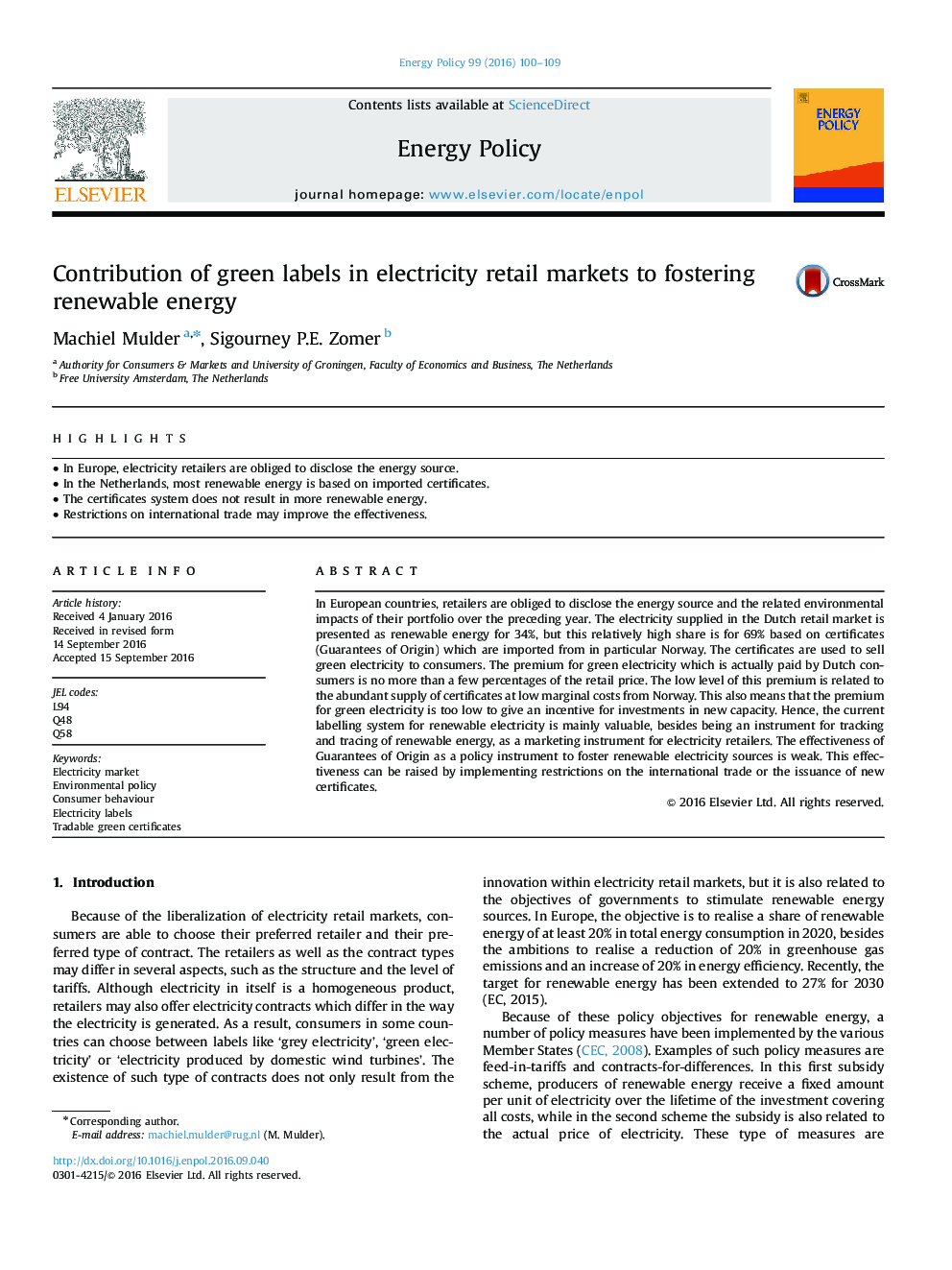| Article ID | Journal | Published Year | Pages | File Type |
|---|---|---|---|---|
| 5106250 | Energy Policy | 2016 | 10 Pages |
Abstract
In European countries, retailers are obliged to disclose the energy source and the related environmental impacts of their portfolio over the preceding year. The electricity supplied in the Dutch retail market is presented as renewable energy for 34%, but this relatively high share is for 69% based on certificates (Guarantees of Origin) which are imported from in particular Norway. The certificates are used to sell green electricity to consumers. The premium for green electricity which is actually paid by Dutch consumers is no more than a few percentages of the retail price. The low level of this premium is related to the abundant supply of certificates at low marginal costs from Norway. This also means that the premium for green electricity is too low to give an incentive for investments in new capacity. Hence, the current labelling system for renewable electricity is mainly valuable, besides being an instrument for tracking and tracing of renewable energy, as a marketing instrument for electricity retailers. The effectiveness of Guarantees of Origin as a policy instrument to foster renewable electricity sources is weak. This effectiveness can be raised by implementing restrictions on the international trade or the issuance of new certificates.
Keywords
Related Topics
Physical Sciences and Engineering
Energy
Energy Engineering and Power Technology
Authors
Machiel Mulder, Sigourney P.E. Zomer,
